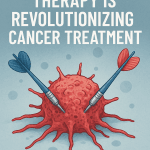This article is for informational purposes only and should not be considered medical advice. Always consult with a healthcare professional for personal health concerns.
Understanding Heart Disease
Heart disease encompasses a range of conditions affecting the heart, including coronary artery disease, heart rhythm problems (arrhythmias), and congenital heart defects. It remains the leading cause of death worldwide, making awareness of its causes, symptoms, and treatments crucial for maintaining heart health. Understanding the pathophysiology behind these conditions can empower individuals to take proactive steps in managing their heart health. By delving deeper into the mechanisms at play, we can better appreciate how lifestyle choices and medical interventions can alter the course of heart disease.
What Causes Heart Disease?
Heart disease arises from a combination of genetic, lifestyle, and environmental factors. Here are some of the primary causes:
1. Atherosclerosis
Atherosclerosis, the buildup of fatty deposits (plaque) in the arteries, is a common cause of heart disease. This process narrows the arteries, restricting blood flow and increasing the risk of heart attack. The pathophysiology involves chronic inflammation and endothelial dysfunction, where the inner lining of the blood vessels becomes damaged, leading to plaque formation. Factors such as high cholesterol, smoking, and hypertension exacerbate this condition. Over time, the plaque can rupture, resulting in a blood clot that can completely obstruct blood flow, leading to serious complications.
2. High Blood Pressure
Hypertension, or high blood pressure, puts extra strain on the heart and blood vessels. Over time, this can lead to heart failure or other serious complications. The mechanisms include increased workload on the heart and damage to blood vessels, resulting in reduced blood flow and oxygen supply to the heart muscle. It’s important to note that hypertension often has no symptoms, making regular monitoring essential. Lifestyle changes, such as reducing salt intake and managing stress, can significantly lower blood pressure.
3. High Cholesterol
Elevated levels of LDL cholesterol can contribute to plaque formation in the arteries. Regular cholesterol screenings can help identify and manage this risk factor. It’s important to note that not all cholesterol is harmful; HDL cholesterol helps protect against heart disease by transporting cholesterol away from the arteries. Understanding your cholesterol levels and the ratio of LDL to HDL is crucial for heart health. Dietary changes, such as increasing omega-3 fatty acids and fiber, can help improve cholesterol levels.
4. Diabetes
Diabetes significantly increases the risk of heart disease. High blood sugar levels can damage blood vessels and nerves, leading to cardiovascular issues. The pathophysiology involves glycation of proteins, which contributes to endothelial dysfunction and inflammation, further promoting atherosclerosis. Managing blood sugar levels through diet, exercise, and medication can greatly reduce the risk of heart-related complications for those with diabetes.
5. Lifestyle Factors
Poor diet, lack of physical activity, smoking, and excessive alcohol consumption can all contribute to the development of heart disease. Making healthy lifestyle choices is essential for prevention. For instance, a diet high in saturated fats and sugars can lead to obesity and insulin resistance, both of which are risk factors for heart disease. Incorporating more whole foods, engaging in regular physical activity, and avoiding tobacco can dramatically improve heart health.
Recognizing the Symptoms
Identifying heart disease early can save lives. Here are common symptoms to watch for:
1. Chest Pain or Discomfort
Often described as a feeling of pressure, squeezing, or fullness in the chest, this symptom can be a sign of a heart attack. It’s crucial to seek immediate medical attention if you experience this. Remember, symptoms can vary significantly between individuals, especially between men and women. Women may experience more subtle symptoms, such as jaw pain or nausea, which can lead to delays in seeking care.
2. Shortness of Breath
This may occur during rest or physical activity and can indicate heart failure or other cardiovascular issues. If you find yourself unusually breathless during activities that previously did not cause discomfort, it’s worth discussing with your healthcare provider. This symptom can also be exacerbated by anxiety or other respiratory conditions, making a comprehensive evaluation essential.
3. Fatigue
Unusual tiredness or fatigue can be a subtle sign of heart disease, especially in women. It’s important to pay attention to changes in your energy levels. If fatigue persists despite adequate rest, consider consulting a healthcare professional. Fatigue can stem from various causes, including anemia or thyroid issues, so a thorough investigation is critical.
4. Irregular Heartbeats
Feeling a fluttering or racing heartbeat can signal arrhythmias or other heart conditions. Regular check-ups can help monitor heart rhythm. If you experience palpitations frequently, it’s advisable to undergo an evaluation. Certain lifestyle factors, such as caffeine intake or stress, can also contribute to irregular heartbeats, so keeping a diary of symptoms may help identify triggers.
Best Treatments for Heart Disease
Treatment for heart disease varies based on the type and severity of the condition. Here are some effective approaches:
1. Lifestyle Changes
Making healthy lifestyle choices is the first line of defense against heart disease. This includes:
- Adopting a heart-healthy diet rich in fruits, vegetables, whole grains, and lean proteins. Consider the Mediterranean diet, which has been shown to reduce cardiovascular risk.
- Engaging in regular physical activity, aiming for at least 150 minutes of moderate exercise weekly. Activities like brisk walking, cycling, and swimming are excellent options.
- Quitting smoking and limiting alcohol intake to reduce cardiovascular risk. Even reducing smoking can have immediate benefits for heart health.
2. Medications
Various medications can help manage heart disease, including:
- Statins: Used to lower cholesterol levels, statins can significantly reduce the risk of heart attacks.
- Antiplatelet agents: Help prevent blood clots, particularly in individuals with a history of heart attack or stroke.
- Beta-blockers: Reduce blood pressure and heart workload, often prescribed after a heart attack.
- ACE inhibitors: Help relax blood vessels and lower blood pressure, providing additional heart protection.
3. Surgical Procedures
In some cases, surgical interventions may be necessary, such as:
- Coronary Angioplasty: A procedure to open narrowed arteries, often accompanied by stent placement to keep the artery open.
- Bypass Surgery: Creating a new pathway for blood flow around blocked arteries, which can significantly improve heart function.
- Heart Valve Repair or Replacement: Addressing issues with heart valves, which can impact blood flow and heart function.
4. Cardiac Rehabilitation
Cardiac rehab programs offer supervised exercise, education, and counseling to help patients recover and prevent future heart issues. This multidisciplinary approach often includes dietitians, exercise physiologists, and mental health professionals. Participating in a cardiac rehab program can significantly improve quality of life and reduce the risk of future cardiac events.
Patient Vignette
Consider the case of Sarah, a 52-year-old woman who began experiencing fatigue and shortness of breath during her daily walks. After a thorough examination, her doctor diagnosed her with coronary artery disease. By adopting a heart-healthy diet, engaging in regular exercise, and taking prescribed medications, Sarah improved her heart health significantly and regained her energy. Her journey highlights the importance of early detection and proactive management in heart disease. With support from her healthcare team, she learned to navigate her condition and make informed lifestyle choices.
Frequently Asked Questions
1. What are the main risk factors for heart disease?
Key risk factors include high blood pressure, high cholesterol, smoking, diabetes, obesity, and a sedentary lifestyle. Family history also plays a crucial role. Understanding these factors can empower individuals to make necessary lifestyle changes.
2. How can I prevent heart disease?
Preventing heart disease involves maintaining a healthy diet, exercising regularly, managing stress, and avoiding tobacco use. Regular screenings for cholesterol and blood pressure can help catch issues early. Consider working with a healthcare provider to create a personalized prevention plan.
3. What should I do if I experience chest pain?
If you experience chest pain, especially if it is severe or accompanied by other symptoms like shortness of breath, seek medical help immediately. Don’t ignore the signs; timely intervention can be lifesaving.
4. Are heart disease symptoms the same for men and women?
No, women may experience different symptoms, such as fatigue and nausea, rather than typical chest pain. Understanding these differences is vital for timely intervention. Education on gender-specific symptoms can improve outcomes for women.
5. How often should I get my heart checked?
Adults should have regular check-ups, with specific tests based on risk factors and family history. Consult your healthcare provider for personalized recommendations. Regular monitoring can help identify potential issues before they become serious.
Myth vs. Fact
| Myth | Fact |
|---|---|
| Heart disease only affects older adults. | Heart disease can affect people of all ages, including younger individuals. Early lifestyle interventions can mitigate risks. |
| Women don’t experience heart disease. | Heart disease is a leading cause of death for women as well, often presenting differently than in men. Awareness is key. |
| All cholesterol is bad. | HDL cholesterol is considered “good” cholesterol and helps protect against heart disease. Balance is essential. |
| Heart disease symptoms are always obvious. | Symptoms can be subtle or atypical, especially in women. Regular screenings and awareness of personal risk factors are crucial. |
Key Takeaways
- Heart disease is a leading global health issue with multiple causes.
- Recognizing symptoms early can lead to better outcomes.
- Lifestyle changes are crucial for prevention and management.
- Medications and surgical options are available for treatment.
- Regular check-ups can help monitor heart health effectively.
References
- American Heart Association. (2023). Heart Disease and Stroke Statistics—2023 Update.
- Centers for Disease Control and Prevention (CDC). (2023). Heart Disease Facts.
- National Heart, Lung, and Blood Institute. (2023). What Is Heart Disease?
- World Health Organization (WHO). (2023). Cardiovascular Diseases (CVDs).
- UpToDate. (2023). Overview of the management of coronary artery disease.
- PubMed. (2023). Risk factors for heart disease and their management.








Post a comment